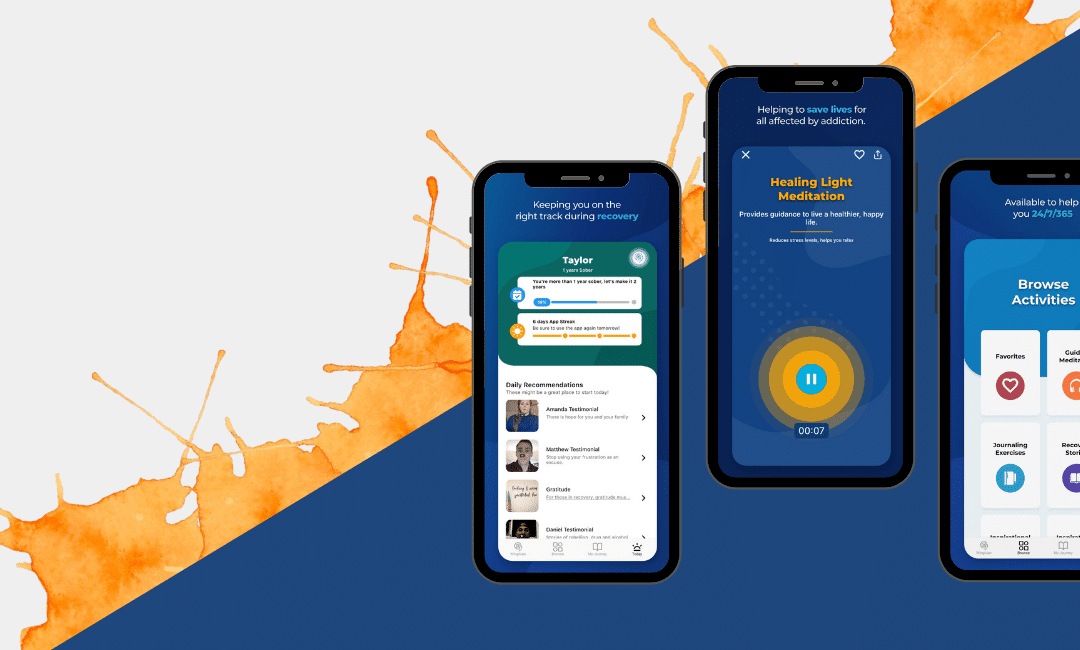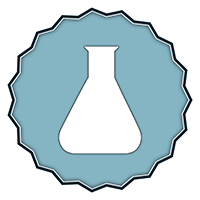The epidemic of addiction in the 21st century requires a comprehensive response—one that incorporates not only traditional treatment methods but also addresses the deeper roots of addiction in the mind, body, and spirit. WingMan, a digital behavioral health platform, delivers a powerful suite of tools to support long-term recovery by combining personalized care, accountability systems, and AI-enhanced insights. This paper outlines how WingMan operationalizes holistic addiction recovery and brings unparalleled transparency to the treatment process.
I. Introduction: The Need for Holistic, Transparent Recovery Support Substance abuse has reached epic proportions in the 21st century. Crime rates are escalating all over the world. People from every race, color, and socio-economic background are becoming addicted to drugs such as Crack, Cocaine, Fentanyl, Methamphetamine, Heroin, Alcohol, and prescription drugs. The growth of prescription drug and fentanyl addiction in America’s middle class has been devastating. As a result of addiction, mental illness and drug abuse, marriages and families are being destroyed, and children are being endangered.
Addiction professionals must continuously reevaluate treatment methods. Many promising new approaches remain underfunded due to political and insurance-related roadblocks. This paper promotes public awareness of the addiction epidemic, deepens understanding of its root causes, and advocates for more effective and evidence-based treatment methods. WingMan offers a toolset that supports this vision.
II. BODY: Supporting Physical Healing & Regulation
Introduction: The 21st-century holistic model for addiction recovery begins with the body. Physical
health forms the foundation for mental and emotional stability. Substance abuse depletes the body
of essential nutrients and disrupts key physiological systems, making nutritional restoration and
detoxification essential in recovery.
Challenges:
• Toxins & Poor Diet: Processed foods, sugars, caffeine, and additives disturb brain
chemistry.
• Dehydration & Protein Deficiency: Most individuals entering treatment lack proper hydration and nutrition.
• Infections & Imbalances: Bacterial/fungal infections, H. pylori, leaky gut, mold exposure, and
parasites impair nutrient absorption and mental health.
• Neurochemical Depletion: Drugs and alcohol drain amino acids, vitamins, and minerals needed for
brain function.
WingMan Solutions:
• Daily Physical Health Logs: Users track hydration, meals, supplements, and sleep
quality.
• Detox & Nutritional Journaling: Logs assist users in monitoring reactions to food, supplements,
and elimination protocols.
• Upload of Lab Panels: Test results (microbiome, vitamins, heavy metals, etc.) are securely
stored and shared with clinicians.
• Routine Reminders: Push notifications support compliance with health routines, from hydration to
exercise.
• Physical Health Goal Tracking: Smart goal-setting tools help users and stakeholders monitor
recovery objectives related to physical well-being.
• Reward System: Completion of healthy routines earns users NOIAS, incentivizing positive
behavior.
III. MIND: Rewiring Thought Patterns & Emotional Health
Introduction: Current research confirms that chemical imbalances in the brain and gut microbiome
significantly contribute to both addiction and co-occurring mental illnesses. Drug abuse disrupts
neurotransmission, often causing depression, emotional instability, and impaired judgment. Chronic
substance abuse can initiate a vicious emotional cycle, compounding mental health issues and
reinforcing addiction.
Challenges:
• Neurochemical Imbalances: Caused by substance abuse, leading to mood instability and loss of
emotional control.
• Cognitive Dysfunction: Poor concentration, impulsivity, and emotional dysregulation.
• Mental Illness Risk: Individuals with substance use disorders are more likely to suffer from serious mental health conditions.
•Lack of Root-Cause Treatment: Traditional therapy often misses the biological and trauma-related
roots of addiction.
WingMan Solutions:
• AI-Powered CBT Journal: Guided prompts help users reframe negative thinking and identify relapse
patterns.
• Trauma Integration Logs: Reflection spaces after Eye Movement Desensitization and Reprocessing (EMDR), neurofeedback, or Neuro-Linguistic Programming (NLP) therapy. WingMan enables this integration by allowing clinicians to create customized curriculums and handouts tailored to each user’s therapy modality. For example, EMDR users may receive digital post-session prompts to capture emotional breakthroughs, while NLP therapy clients can engage with structured language reprogramming exercises and affirmations delivered through the app. These personalized modules reinforce the techniques discussed in therapy, track emotional shifts, and provide data for follow-up sessions.
• Motivational Trend Dashboards: Visual tracking of mood, motivation, and daily mental habits over time.
• Mental Wellness Audio Library: Guided meditations, breathing exercises, and stress- reduction practices.
• Behavioral Analytics: Personalized nudges are delivered based on engagement levels, emotional volatility, and journaling patterns.
IV. SPIRIT: Restoring Meaning, Connection & Identity
Introduction: Addiction destroys self-worth, spiritual connection, and inner peace. Rebuilding one’s moral compass, values, and sense of purpose is fundamental to long-term sobriety.
Spirituality offers recovering individuals a renewed belief in their potential, hope for healing, and a framework to re-engage with life.
Challenges:
• Disconnection from Self and Purpose: Addictive behaviors erode self-worth, values, and the belief in a meaningful life.
• Negative Thought Patterns: Recovery requires replacing toxic inner dialogue and distancing from harmful environments or people.
•Absence of a Guiding Principle: Without a higher sense of order or moral compass,
relapse risk increases.
WingMan Solutions:
• Spiritual Reflection Journal: Daily/weekly prompts for values clarification, gratitude, and prayer.
• 12-Step Integration Tools: Step tracking, sponsor contact logs, and milestone recognition (e.g., 30 days sober).
• Routine Builder: Users create personal rituals (e.g., morning meditation or reading) with reminders and streaks.
• G.O.D. Feature (Good Orderly Direction): Encourages structured, value-aligned routines that promote spiritual stability. This feature is rooted in the role of spiritual guidance and connection to a higher power as a foundation for long-term recovery. Through daily spiritual routines—such as prayer, gratitude, and reflection—users strengthen their connection to a personal guiding force, whether religious or philosophical. WingMan respects diverse belief systems, allowing each user to define what “Good Orderly Direction” means to them, and integrating this into customizable routines that support identity rebuilding, resilience, and hope.
• Support Network Activation: 24/7 access to family, sponsors, counselors, and emergency contacts.
V. TRANSPARENCY & ACCOUNTABILITY
Challenges:
• Fragmented care and communication
• Lack of real-time accountability
• Difficulty measuring progress post-treatment
WingMan Solutions:
• Stakeholder Dashboards: Sponsors, therapists, family, and clinicians can view authorized progress reports.
• POAP (Proof of Attendance Protocol): Blockchain-based certificates verify participation in meetings, therapy, or assignments.
• Relapse Prediction AI: Pattern recognition detects early disengagement and sends alerts to users
and supporters.
• Progress Analytics: Data visualizations help stakeholders understand behavioral trends,
engagement levels, and treatment efficacy.
• Custom Notifications: Facilities can design and automate messages for check-ins, encouragement,
or reminders.
VI. Conclusion: A Blueprint for Whole-Person Recovery
Addiction treatment has progressed significantly, yet millions of people in the U.S. and across the world still lack access to the care they need. The most effective approach in the 21st century is holistic—treating individuals not just as patients, but as whole human beings with physical, psychological, and spiritual needs.
Successful recovery requires time, dignity, respect, and a recognition of the complex journey each person must take to heal. Treatment ideally begins with 60 to 90 days of inpatient care, followed by intensive outpatient programs and long-term aftercare. However, this continuum of care often breaks down due to systemic gaps, stigma, and lack of ongoing support. WingMan was created to bridge these gaps by delivering a digital companion that sustains recovery across every phase—from clinical detox to life-long wellness.
WingMan empowers users to take ownership of their recovery while providing structure, accountability, and personalized support. Through integrated tools for physical health tracking, emotional insight, and spiritual alignment, it fosters transparency and connection across treatment providers, family members, and peer supporters. By leveraging data, behavioral science, and AI, WingMan enables early intervention, customized care, and measurable outcomes.
The more we embrace and deploy holistic, tech-enabled approaches like WingMan, the more we can reverse the spread of addiction and mental illness. Public awareness, stigma reduction, and scalable platforms are key to reaching the millions in need. Knowledge is power—and with WingMan, recovery becomes not just a possibility, but a trackable, supported, and transformative reality.
For more information or to schedule a demo, visit www.wingman4recovery.com
Dr John Giordano PHD is a recovering addict who celebrates 40 years of continuous recovery. His addiction degrees are as follows D.H.L C.A.P., M.A.C., & C.C.J.S. John and his partners started their company with $300 dollars and sold Holistic Addiction Treatment Program in North Miami Beach, Florida. In 2012 for $45 million dollars. John Giordano has been the recipient of many distinguished awards, such as the Martin Luther King Award, and the Homeless Humanitarian Award. Mr. Giordano has been on numerous television and radio shows and podcasts he also has lectured to approximately 150 countries around the world. He continues to give back to humanity to help God’s children. John is also in the Black Belt Hall of Fame because of his many accomplishments and contributions to the martial arts, including becoming a 10˚ black belt and a national karate champion. He is also the author of the book, The kid from the South Bronx who never gave up. That was recently featured in News week, and how to beat your addictions, and live a quality life. Dr. Giordano is also in over eighty medical and scientific-peered-reviewed journals along with some of the top scientists and researchers in the world. The best way to see Dr Giordano’ s papers is on Research Gate.
For more information, please contact Dr John Giordano.
At JohnJGiordano.com or call him at 786-271-5732


